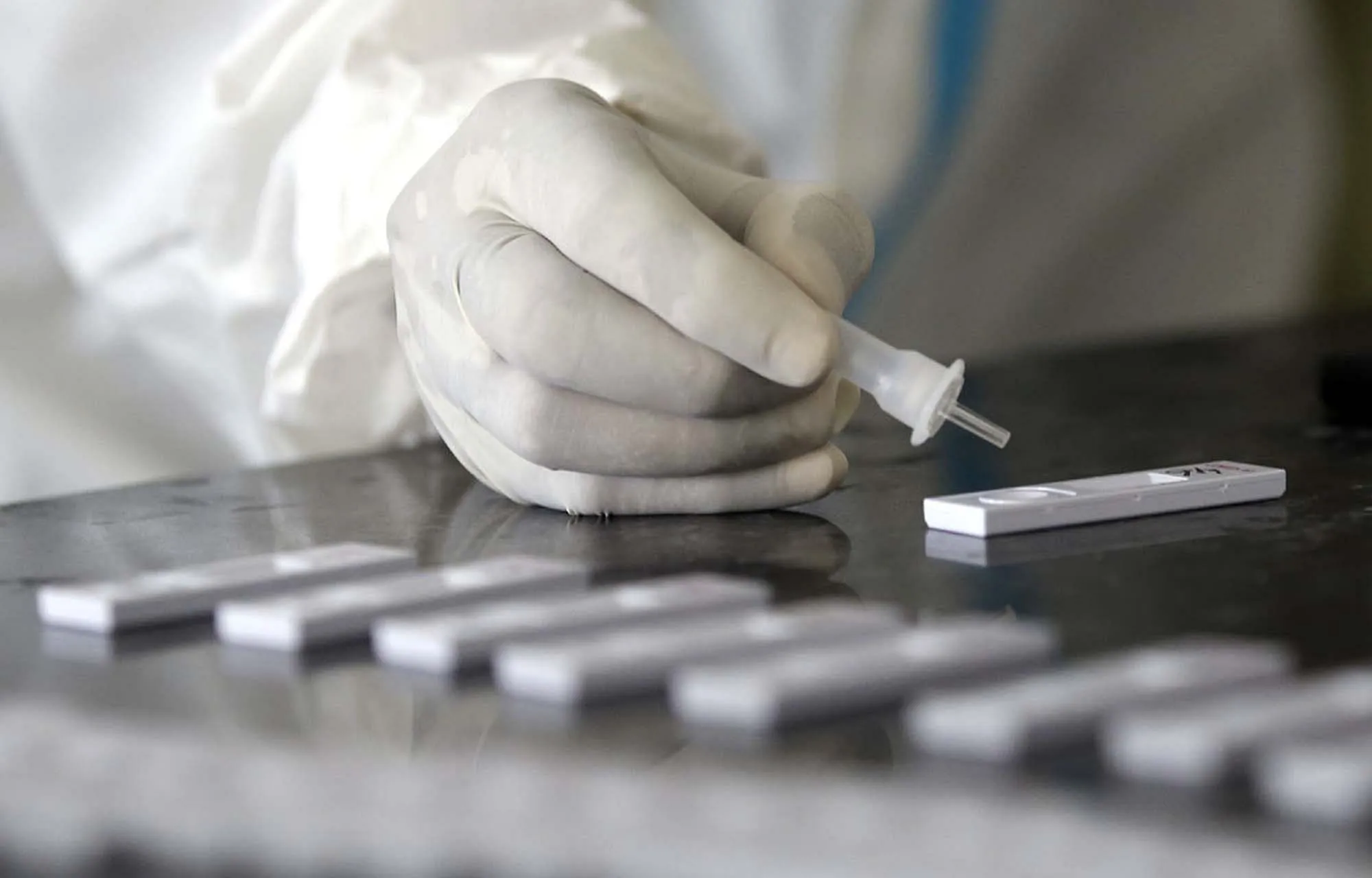Researchers have said that Covid-19 (SARS-Cov-2) that causes the novel coronavirus infection, can survive for 28 days on smooth surfaces such as stainless steel, phone screens, glass, plastic and banknotes, reported India Today on Monday.
Contrary to previous research that suggested Covid-19 can survive for three to seven days on smooth surfaces, the recent study by researchers at Australian agency CSIRO says that the virus can remain infectious for up to 28 days — longer than the flu virus– when kept in the dark at room temperature (20C [68F]).
This research paper was published in the journal Virology Journal on October 7.
What the recent study says?
According to the study, at 20 °C, infectious Covid-19 or SARS-CoV-2 virus was still detectable after 28 days “post inoculation, for all non-porous surfaces” tested during the experiment — glass, polymer note, stainless steel, vinyl and paper notes.
“With initial viral loads broadly equivalent to the highest titres excreted by infectious patients, viable virus was isolated for up to 28 days at 20 °C from common surfaces such as glass, stainless steel and both paper and polymer banknotes,” it said.
In its conclusion, the paper said: “These findings demonstrate SARS-CoV-2 can remain infectious for significantly longer time periods than generally considered possible. These results could be used to inform improved risk mitigation procedures to prevent the fomite spread of Covid-19.”
By comparison, Influenza A virus has been found to survive on surfaces for 17 days.
It also revealed that the virus survived longer on smooth surfaces than on complex surfaces such as cotton, and longer on paper banknotes than on plastic banknotes.
The experiment was conducted in a very controlled environment — in a “high containment laboratory (Biosafety level 4)” at the Australian Centre for Disease Preparedness — in the dark, to remove the impact of ultraviolet (UV) light.
It involved drying virus in an artificial mucus on a range of surfaces at concentrations similar to samples from Covid-19 patients and then recovering the virus over a month.
So, to prevent the contagion, the study’s lead researcher Shane Riddell said that is important to wipe surfaces that may be in contact with the coronavirus and wash and sanitize hands regularly.
Reuters quoted Shane Riddell as saying: “It really reinforces the importance of washing hands and sanitising where possible and certainly wiping down surfaces that may be in contact with the virus.”
Differences and similarities with the Lancet study
A study published in the journal The Lancet in May revealed that when kept at room temperature, “No infectious virus could be detected from treated smooth surfaces on day 4 [glass and banknote] or day 7 [stainless steel and plastic].”
For the surfaces which aren’t smooth, the study said: “No infectious virus could be recovered from printing and tissue papers after a 3-hour incubation, whereas no infectious virus could be detected from treated wood and cloth on day 2”.
For the case of surgical masks, the study showed that “a detectable level of the infectious virus could still be present on the outer layer of a surgical mask on day 7 [~0·1 per cent of the original inoculum]”.
This Lancet was conducted under the following conditions: a droplet of virus culture (~7·8 log unit of TCID50 per mL) was poured on a surface and left at room temperature (22°C) with a relative humidity of around 65 per cent.
Even as the two studies differ on the number days for which Covid-19 or SARS-CoV-2 virus remains infectious, both showed that Covid-19 or SARS-CoV-2 was more stable on smooth surfaces.
Virus is sensitive to heat
Quoting the study, the India Today reported both these studies have proposed that the virus cannot survive longer when the temperature is increased.
At 20 degrees Celsius, the virus survives for 28 days. When the temperature is raised to 30 degrees Celsius, the survival rate drops to 7 days and at 40 degrees, it is plunged down to just 24 hours — revealed the study conducted by Australian researchers said.
“Infectious virus survived less than 24 hours at 40°C on some surfaces,” the research paper in the Virology Journal said.
While the Lancet study said that the virus stopped being infectious within just 5 minutes when the temperature was increased to 70 degrees Celsius.
“With the incubation temperature increased to 70°C, the time for virus inactivation was reduced to 5 mins,” it said.
“The virus is highly stable at 4°C,” the Lancet study said.
Referring to the upcoming southern hemisphere summer, Riddell said: “So heading into summer, that’s certainly going to be an important factor that the virus won’t last as long in the warmer temperatures.”






